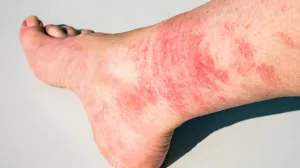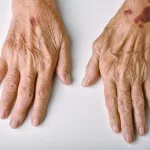Let’s cut to the chase: Skyrizi can cause a handful of mild annoyances like a stuffy nose or a sore spot where you inject, and, on the very rare side, it can spark more serious reactions. Most folks wind up feeling fine, and the benefits for plaque psoriasis, psoriatic arthritis, Crohn’s disease, or ulcerative colitis usually outweigh those bumps in the road. If you’re weighing whether Skyrizi is right for you, keep reading – we’ll break everything down in plain‑talk, friend‑to‑friend style.
Understanding Skyrizi Basics
Skyrizi (risankizumab‑rzaa) belongs to a class of medicines called interleukin‑23 (IL‑23) inhibitors. In simple terms, it tells a part of your immune system to calm down, which helps clear up the inflammation that fuels psoriasis patches, joint pain, and gut inflammation.
The drug got the FDA’s nod in 2019 for four adult indications:
- Moderate‑to‑severe plaque psoriasis
- Active psoriatic arthritis
- Moderately‑to‑severely active Crohn’s disease
- Moderately‑to‑severely active ulcerative colitis
How you take it matters, too. After a loading dose (often an IV infusion for Crohn’s or ulcerative colitis, or a subcutaneous injection for skin disease), you’ll get a prefilled syringe under the skin every 12 weeks. That schedule keeps the drug’s levels steady without daily pills.
Common Mild Side Effects
Most people on Skyrizi notice only the “little‑but‑real” side effects. Think of them as the occasional speed bump on an otherwise smooth highway.
Upper‑Respiratory Infections
Cold‑like symptoms—runny nose, sore throat, mild cough—show up in roughly one‑quarter of patients. The good news? They’re usually short‑lived and don’t require a doctor’s visit unless they linger beyond a week.
Injection‑Site Reactions
Redness, a pinch of swelling, or a tiny bruise where the needle went in are normal. Rotate injection sites (upper arm, thigh, abdomen) and tap the area gently after the shot; a cool compress can ease any lingering sting.
Fatigue & Headache
Feeling a bit more tired than usual or getting a light headache is common, especially after the first few doses. Hydration, a balanced breakfast, and a short walk often help reset your energy.
Fungal Skin Infections
Because Skyrizi nudges the immune system, you might notice athlete’s foot or a mild yeast rash. Over‑the‑counter antifungal creams usually clear things up in a few days.
| Side Effect | Psoriasis % | Psoriatic Arthritis % | Crohn’s Disease % | Ulcerative Colitis % |
|---|---|---|---|---|
| Upper‑respiratory infection | 23 | 22 | 27 | 25 |
| Injection‑site reaction | 15 | 14 | 12 | 13 |
| Fatigue | 12 | 11 | 14 | 13 |
Data compiled from AbbVie’s Integrated Summary of Safety (2024).
Serious Rare Side Effects
Now, let’s get honest about the scarier‑sounding possibilities. They’re rare, but knowing them can save a lot of anxiety (and maybe even a life).
Severe Allergic Reactions (Anaphylaxis)
If you ever notice swelling of the face, lips, or tongue, trouble breathing, hives, or you feel faint, stop the injection immediately and call 911. This is a medical emergency.
Infections Requiring Attention
Because the drug dampens immune vigilance, serious infections—like bacterial pneumonia, TB reactivation, or opportunistic fungal infections—can surface. That’s why your doctor will screen for TB and run baseline blood work before you start.
Liver Abnormalities
In trials involving Crohn’s patients, a small handful showed elevated liver enzymes (ALT/AST) or jaundice. Doctors usually monitor liver labs at baseline and then every 12 weeks for the first year.
Cardiovascular / Thrombotic Events
The FDA box warning mentions a very low (<0.1 %) risk of heart attacks or clots. While the numbers are tiny, anyone with a history of heart disease should discuss this with their cardiologist.
When any of the symptoms below appear, pick up the phone:
- Sudden swelling of the face or throat
- Fever > 101 °F with chills, cough, or shortness of breath
- Yellowing of skin or eyes, dark urine
- Persistent, unexplained fatigue or weakness
Skyrizi Cancer Risk
It’s natural to wonder whether dampening part of the immune system could open the door to cancer. The short answer? Large pooled safety analyses covering roughly 26,880 patient‑years of exposure have not shown an increased cancer rate compared with the general population.
According to the FDA’s safety review, fewer than 1 % of participants reported a new malignancy, and that figure mirrors what we’d expect in people not taking the drug. An oncology researcher at a leading university summed it up: “Current evidence does not support a causal link between Skyrizi and cancer; the risk appears negligible.”
Managing Side Effects
Prevention is half the battle. Here’s a quick checklist you can keep on your nightstand.
Pre‑Treatment Screening
- TB test (Quantiferon or chest X‑ray)
- Hepatitis B & C screening
- Baseline CBC, liver panel, and kidney function
Lifestyle Hacks
- Stay hydrated – water helps your body flush out any residual inflammation.
- Wash hands frequently, especially during cold season, to reduce the chance of catching an upper‑respiratory infection.
- Use a gentle, fragrance‑free cleanser at the injection site to keep skin irritation low.
- Get the inactivated flu shot each fall; live vaccines should be avoided while on Skyrizi (according to official safety information).
When to Adjust Dose or Pause
If you develop a grade 3 or higher lab abnormality, recurrent serious infections, or an allergic reaction, your dermatologist or gastroenterologist may pause the medication and reassess. Never self‑adjust dosing – always talk to your provider first.
Complementary Care (Safe Extras)
While there’s no magic pill to erase side effects, some low‑risk add‑ons can make you feel better:
- Vitamin D (especially if you live in a sunny‑scarce area)
- Probiotic‑rich foods – they support gut health and may blunt mild stomach upset.
- Gentle stress‑relief practices (deep breathing, short walks, or a favorite hobby) – stress can amplify fatigue.
Real World Stories
Data are great, but hearing from people who’ve walked the path makes it real.
Emily, 32, plaque psoriasis: “My first two doses gave me a tiny sore arm and a cold that cleared up in four days. I was terrified at first, but my dermatologist explained that these are the most common reactions. After the third dose I felt my skin clearing and the side effects faded.”
James, 58, Crohn’s disease: “About three months in, I woke up with a rash on my torso and felt my throat swell. I called my doctor right away, and they told me it was an allergic reaction. We stopped Skyrizi and switched to another biologic. It was scary, but catching it early saved me from a bigger emergency.”
These stories illustrate the spectrum: most patients have mild, transient symptoms, while a small subset experiences serious events that need prompt medical attention.
Key Takeaway Summary
Skyrizi’s side‑effect profile is largely mild, with upper‑respiratory infections and injection‑site reactions showing up most often. Serious issues—severe allergic reactions, significant infections, liver changes, or rare cardiovascular events—are uncommon but warrant immediate medical care. The current evidence does not link Skyrizi to an increased cancer risk, and its therapeutic benefits for psoriasis, psoriatic arthritis, Crohn’s disease, and ulcerative colitis are well‑documented.
What should you do next? Talk openly with your dermatologist or gastroenterologist about any new symptoms, keep a side‑effect journal, and follow the pre‑treatment screening checklist. If you’re curious or hesitant, ask your provider to walk you through the safety data—knowledge is the best way to feel confident about your treatment choice.
Have you started Skyrizi or are you considering it? Share your thoughts or questions in the comments below—your experience could help someone else navigate this journey.

























Leave a Reply
You must be logged in to post a comment.